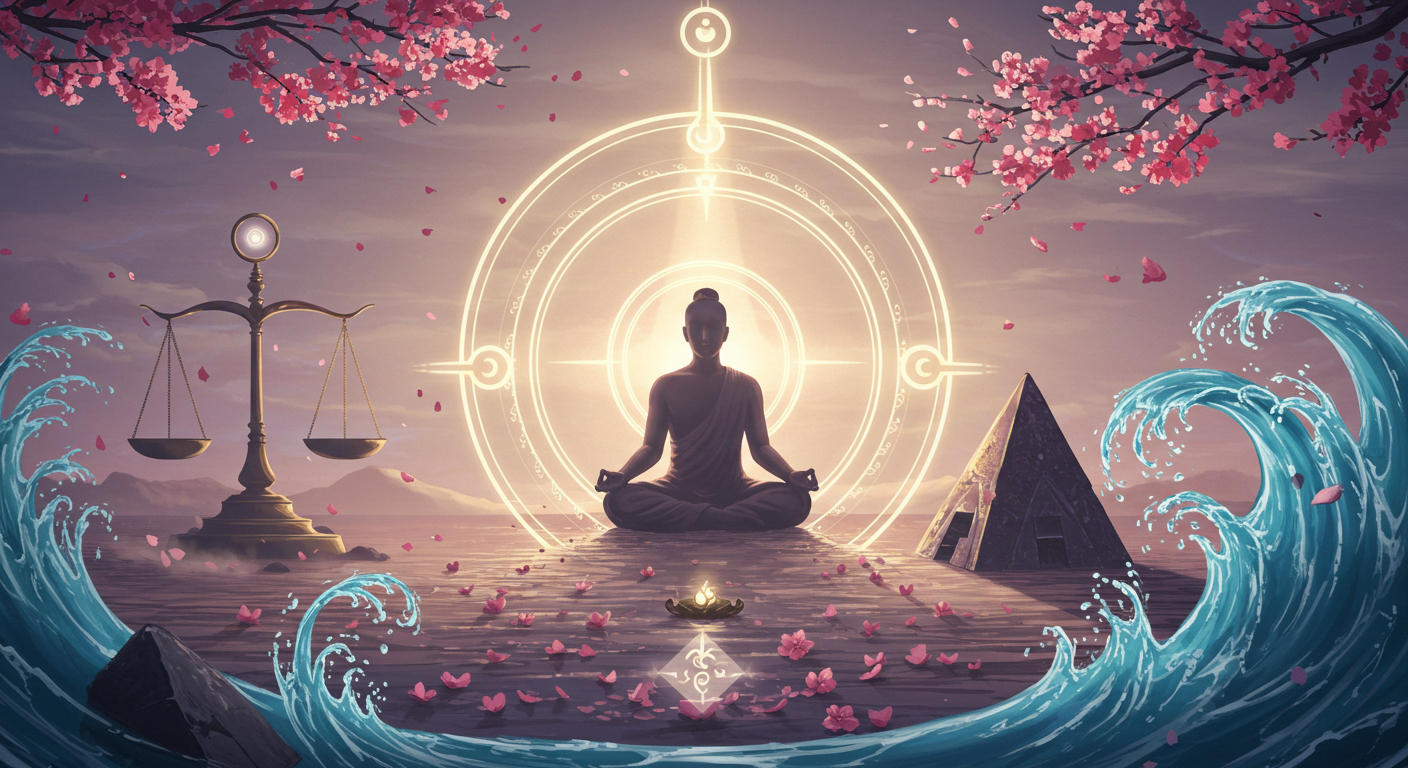Imagine a spiritual practice that combines ancient wisdom with modern mindfulness. A path that encourages self-discovery and connection to the universe. Welcome to Jyokyo, a system of beliefs and practices designed to elevate your spirit.
Jyokyo invites individuals from all walks of life to explore their inner selves while fostering community bonds. Through meditation, rituals, and shared experiences, practitioners embrace transformation. Whether you’re seeking solace or enlightenment, Jyokyo offers tools for personal growth.
Are you ready to dive deep into this intriguing spiritual framework? Let’s uncover its history, principles, and how it can enhance our daily lives.
History and Origins of Jyokyo
Jyokyo has a rich history that intertwines spirituality and culture. Its roots trace back to ancient Eastern philosophies, where seekers aimed for enlightenment and harmony.
The term “Jyokyo” itself emerged during a period of spiritual awakening in the 8th century. Influences from Buddhism and Taoism played significant roles in shaping its principles. Early practitioners gathered in temples, sharing insights on life’s mysteries.
As time progressed, Jyokyo evolved through various regions. Each community adapted practices, infusing local beliefs while preserving core teachings. This adaptability made Jyokyo resonate with many cultures.
Historical texts highlight key figures who championed these ideas. Their writings reflect deep introspection and guidance sought by countless followers over centuries. Through oral traditions and sacred scripts, the essence of Jyokyo was passed down through generations.
Today, it stands as both an ancient path and a contemporary guide for those seeking deeper meaning in life’s journey.
Core Beliefs and Principles of Jyokyo
At the heart of Jyokyo lies a unique set of beliefs that shape its philosophy. Central to these is the concept of interconnectedness. Everything in existence is seen as part of a vast web, influencing and supporting one another.
Another core principle is mindfulness. Practitioners strive to be present, fully engaging with their thoughts and surroundings. This awareness fosters compassion toward oneself and others.
The pursuit of harmony also plays a vital role in Jyokyo’s teachings. Balance within oneself translates into balanced relationships with others and nature.
Additionally, growth through self-reflection is emphasized. By examining one’s actions and intentions, individuals can evolve spiritually.
These principles create a framework for living authentically while nurturing deeper connections within the community and beyond.
The Practice of Meditation in Jyokyo
Meditation is a cornerstone of Jyokyo practice. It serves as a bridge between the mind and spirit, fostering inner peace and clarity.
In Jyokyo, meditation is not just about stillness; it’s an active engagement with one’s thoughts and emotions. Practitioners often start with breath awareness, allowing them to ground themselves in the present moment.
The environment plays a significant role too. Many find solace in nature or serene spaces dedicated to reflection. The sounds of water or rustling leaves can deepen this meditative state.
Guided sessions are common within communities, where experienced members share techniques that resonate deeply with tradition. These collective practices enhance personal journeys while nurturing bonds among participants.
Meditation in Jyokyo invites individuals to explore their internal landscapes. It cultivates mindfulness and fosters growth on both personal and communal levels.
Rituals and Ceremonies in Jyokyo
Rituals and ceremonies in Jyokyo are vibrant expressions of its core beliefs. They serve as vital connections to the spiritual realm, enhancing communal bonds among practitioners.
One significant ceremony is the seasonal festival, where community members gather to honor nature’s cycles. These events often include music, dance, and offerings that reflect gratitude for life’s blessings.
Another essential ritual is daily meditation sessions. Practitioners come together in silence, creating a shared space for inner reflection and collective energy.
Rituals also mark life transitions—births, coming-of-age celebrations, marriages, and memorial services all feature unique customs that embody the essence of Jyokyo teachings.
Through these rituals, participants experience renewal and connection with one another while deepening their personal spiritual journeys. Each event is an opportunity to engage with tradition while fostering growth within individuals and the community alike.
The Importance of Community in Jyokyo
Community plays a vital role in Jyokyo, creating a supportive environment for growth and connection. Members gather to share experiences and insights, fostering deeper understanding of the teachings.
The collective energy enhances individual practices. When people come together, they amplify their intentions during meditation and rituals. This shared focus creates a powerful space for transformation.
Moreover, community involvement encourages accountability. Individuals inspire one another to stay committed to their journeys. The bonds formed often lead to lasting friendships that enrich spiritual paths.
Celebrations are more meaningful within a group setting. Festivals and ceremonies unite members in joy while honoring their beliefs collectively.
Additionally, community service is integral to Jyokyo values. Giving back strengthens connections with others outside the practice, demonstrating compassion in action and reinforcing principles of unity and love throughout society.
Modern Applications of Jyokyo Principles in Daily Life
Jyokyo principles find their way into our everyday routines, bringing tranquility and purpose. Mindfulness, a core tenet of Jyokyo, encourages individuals to stay present. Simple practices like mindful eating or walking can transform mundane activities into moments of awareness.
In the workplace, leaders who embrace Jyokyo foster collaboration and compassion among teams. This approach enhances productivity while nurturing emotional well-being.
Many also incorporate meditation from Jyokyo as a tool for stress relief. A few minutes spent in stillness each day creates space for clarity amidst chaos.
Relationships benefit too; applying principles of empathy and understanding nurtures deeper connections with others. Adopting these values allows us to navigate life’s challenges more gracefully.
Engaging with community through shared activities strengthens social bonds, reflecting the interconnectedness emphasized in Jyokyo teachings. These modern applications breathe life into ancient wisdom, making it relevant today.
Conclusion
Exploring the spiritual framework of Jyokyo offers a unique glimpse into a practice that intertwines philosophy, community, and mindfulness. Rooted in rich history, Jyokyo encourages individuals to connect deeply with their inner selves while fostering harmony within their communities.
The core beliefs and principles emphasize respect for nature, the interconnectedness of all beings, and the importance of living with intention. Through meditation practices, followers cultivate awareness and presence in their daily lives. Rituals and ceremonies serve as powerful reminders of these teachings, creating opportunities for communal bonding.
As modern life becomes increasingly hectic, many find solace in integrating Jyokyo principles into everyday activities. Whether through mindful breathing or engaging in community service, these age-old practices remain relevant today.
Jyokyo is more than just a spiritual path; it is a way to navigate life’s complexities with grace and compassion. It invites everyone on a journey toward self-discovery and collective well-being. Embracing its teachings could very well transform your outlook on life.

